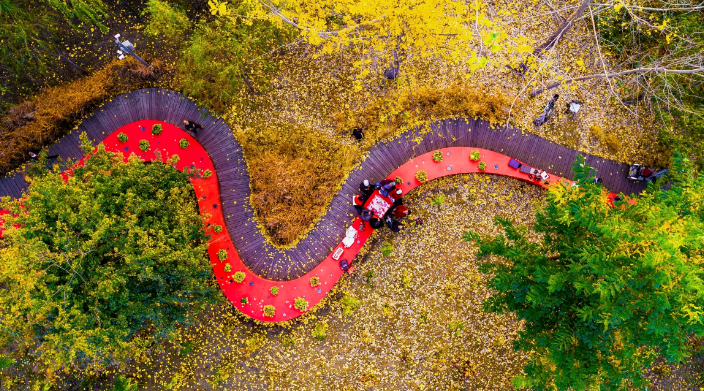Designed Ecologies: The Landscape Architecture of Kongjian Yu
In today’s rapidly urbanizing world, the importance of sustainable and imaginative landscape architecture is more critical than ever. Kongjian Yu, a prominent landscape architect from China, has developed innovative approaches that bridge the gap between nature and urban living. His work highlights the need for designed ecologies—spaces that not only enhance aesthetics but also restore environmental balance.
The Philosophy Behind Designed Ecologies
Kongjian Yu’s philosophy revolves around the idea of “designed ecologies,” which emphasizes the interconnectedness of human-made environments and natural ecosystems. By integrating ecological principles into urban planning, Yu aims to create spaces that foster biodiversity, improve air quality, and manage water resources effectively. This approach encourages communities to coexist harmoniously with nature, transforming urban settings into vibrant ecosystems that support both human life and wildlife.
Innovative Projects Shaping Urban Landscapes
One of Yu’s most notable projects is the Qunli Stormwater Park in Harbin, China. Designed to manage stormwater runoff, this park serves a dual purpose: it mitigates flooding and creates a recreational space for residents. By utilizing wetland plants and bio-swales, the park is a testament to how thoughtful landscape design can enhance urban infrastructure while promoting ecological health. These innovative projects not only demonstrate the possibilities of sustainable design but also inspire cities worldwide to rethink their relationship with nature.
Community Engagement and Educational Impact
Kongjian Yu’s work extends beyond projects; he actively engages communities in the design process to foster a sense of ownership and stewardship over their environments. His emphasis on participatory design encourages local residents to contribute their ideas, making landscape architecture a collaborative effort. Furthermore, through workshops and educational programs, Yu raises awareness about ecological principles, empowering individuals to advocate for sustainable practices in their communities. This approach highlights the potential of landscape architecture to transform not just spaces, but also the people who inhabit them.
In conclusion, Kongjian Yu’s approach to designed ecologies offers invaluable insights into the future of landscape architecture. By prioritizing sustainability, community engagement, and innovative design, he paves the way for creating urban environments that harmonize with nature. If you’re curious about how these principles can be applied to your own projects or community initiatives, consider exploring more about his work and the transformative power of landscape architecture.

